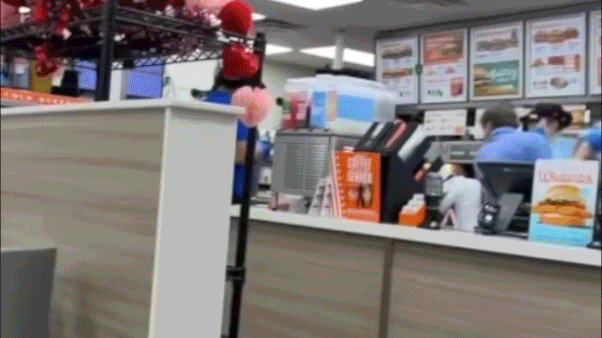‘Tis the season to be mindful of your money.
That’s the mantra of charity evaluators, consumer advocates and security experts as unscrupulous retailers and scammers target holiday shoppers nationwide, both online and off. From bogus charities to identity theft to Web sites selling purportedly authentic wares, consumers can quickly lose their seasonal cheer unless basic preventative steps are taken.
Earlier this week, New York State Attorney General Andrew Cuomo filed a lawsuit against one of New York City’s most visible homeless charities -- the United Homeless Organization, which solicits donations on numerous street corners. Cuomo said the organization is a sham and that almost all donations purportedly destined for services at shelters and drug treatment centers end up being pocketed by staffers and the group’s founders.
“UHO exploits the good intentions of people who thought that their charitable donations were helping to fund services for the homeless," Cuomo said in a written statement. "Instead, their donations go directly to UHO's principals and workers, who abused the organization's tax-exempt status to line their own pockets."
To avoid being taken for a similar ride, Ken Berger, president of Charity Navigator, the nation’s largest independent charity evaluator, suggests you do a little homework before doling out your hard-earned cash.
“People should start with their hearts when they give, but they should also use their heads to make sure that donation is truly going to help,” Berger told FoxNews.com. “It’s critically important.”
Berger strongly advised against making donations to street solicitors and giving money over the phone.
“You could very well be enabling a drug habit or bad behaviors that could actually do more harm than good,” Berger said. “We recommend cutting them a check directly or giving online.”
Charitable organizations should be vetted by visiting evaluation sites like Charity Navigator, Berger said, or by perusing the charity’s Web site to ensure it’s a tax exempt 501(c)(3) organization.
‘You need to look and see if they’re being investigated by anyone,” he said. “You should also call and say, ‘Show me data that indicates you’re having meaningful results in people’s lives.”
Charities that Berger recommends include the Nurse Family Partnership, Harlem Children’s Zone and Youth Villages. Due to the tight economy, Berger said people are looking for more out of their goodwill.
“More and more people are thinking it’s not just a donation, but a social investment that has meaningful results,” he said. “So don’t just give from your heart, use your head too.”
Meanwhile, for those looking to buy gifts for loved ones rather than making donations, the Better Business Bureau recommends brick and mortar shoppers keep wallets or purses snugly beneath their arms or in front pockets. Receipts should also be kept in a wallet rather than stored in a bag that could be swiped if left unattended, and credit card statements should be checked early and often rather than at the end of the month.
Online shopping, where 40 percent of holiday buyers purchased gifts last year, can be trickier, experts say.
According to a report from Javelin Strategy and Research, 10 million people were identity theft victims in 2008, a 22 percent increase from a year earlier. And with shoppers looking to get the best deal possible in a poor economy, this holiday season has the potential to be record-breaking for cybercriminals who have bilked $8 billion from consumers in the past two years, according to Consumer Reports’ 2009 State of the Net Survey.
“We find that usually with the holiday season, your scams are going to center around buying presents online,” said Alison Southwick, a spokeswoman for the Better Business Bureau. “So you need to be cautious.”
Southwick said BBB officials have noticed a sharp increase in Asian-based Web sites selling seemingly high-end electronics.
“But they only accept payments via wire transfer,” Southwick said. “Right there, that’s a big flag. And of course, you never get the item.”
Southwick also warned against phishing e-mails in which consumers receive a message indicating a problem with an order or the user’s account. In just a few clicks, victims can quickly find themselves on a malicious Web site out to pilfer their financial information.
“Don’t click on any links in the e-mail,” Southwick said. “Pick up the phone and call someone or go directly to their Web site. But don’t just follow the links.”
Holiday e-cards can also bring trouble into inboxes, where worms masked as Hallmark e-cards and McDonald’s and Coca-Cola holiday promotions were discovered last year by security firm McAfee Labs.
“You do need to be very cautious when opening e-cards,” Southwick said. “Check the link and make sure it’s legitimate.”
To be entirely safe, Dave Marcus, director of security research and communications at McAfee Labs, suggested treating every holiday-related e-mail received from now until the end of year with caution.
“During the holiday season, the bad guys know that people are more apt to give more, to be more generous,” Marcus said. “They know people are doing seasonal shopping, so the bad guys take the step of registering and creating fake Web sites. They read the same news as we do and prepare for the holidays and seasonal trends.”
Consumers can also be targeted with invoices and delivery notifications purportedly from reputable retailers like Federal Express or UPS, so they should exercise caution during virtually every transaction this holiday season, which has the potential to be a “record” holiday season for scams, Marcus said.
“People are going to be looking for bargains,” he said. “It all kinds of comes together and the bad guys have done the prep.”









































